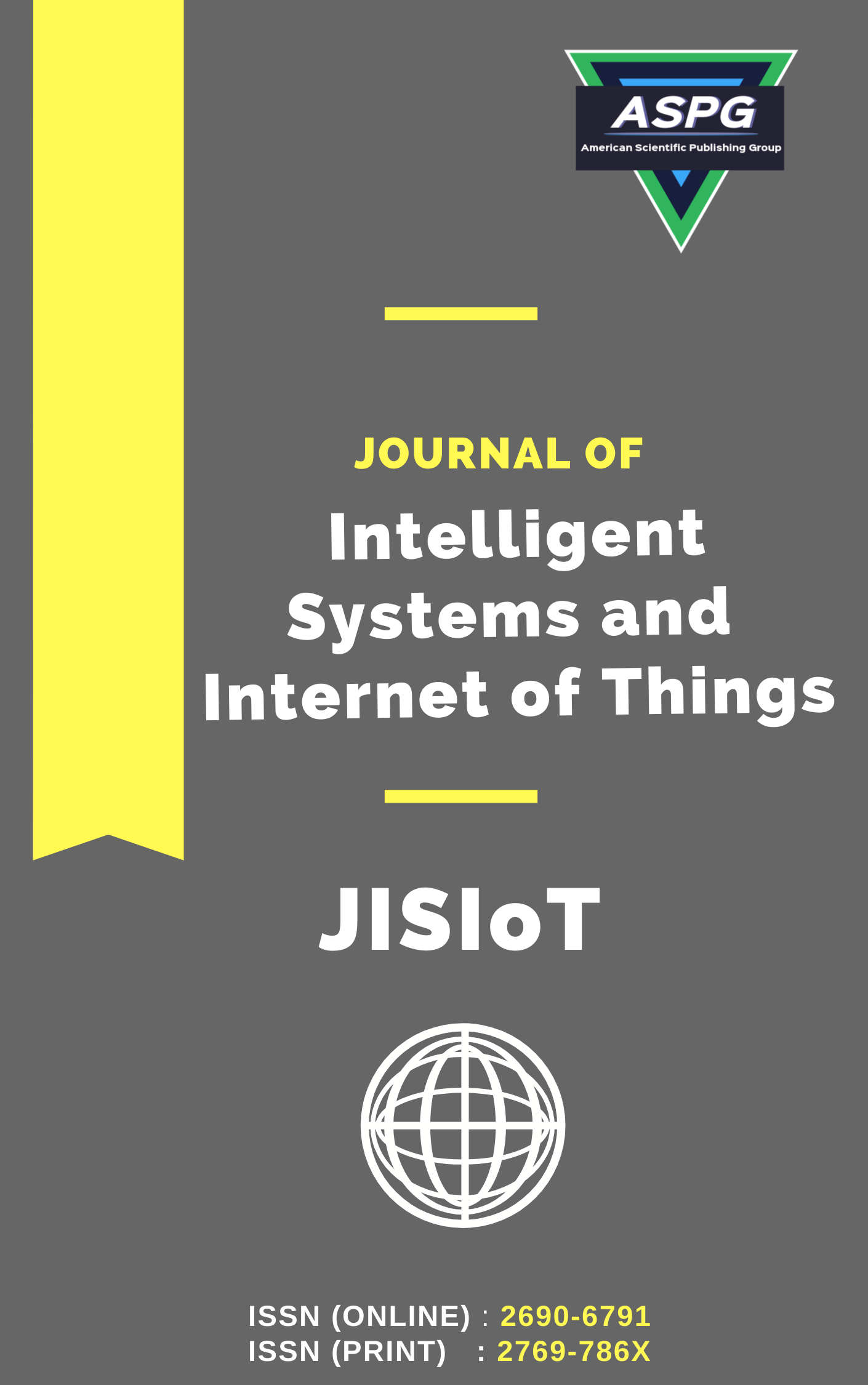

Volume 14 , Issue 2 , PP: 189-212, 2025 | Cite this article as | XML | Html | PDF | Full Length Article
Ali Jaber Almalki 1 *
Doi: https://doi.org/10.54216/JISIoT.140216
The demand for high-quality Direct-to-Home (D2H) television broadcasting services delivered via Low Earth Orbit (LEO) satellite constellations has surged in recent years. To address the growing needs of viewers, satellite communication must optimize the scheduling and routing of signals while balancing conflicting objectives. This research presents a novel approach named as Multi-Objective Deep Routing and Scheduling (MODRS) algorithm that is designed to tackle the challenges of signal latency minimization, bandwidth utilization maximization, and viewer demand satisfaction. The Multi-Objective Deep Neural Network (MODNN) is implemented in this paper to make intelligent routing and scheduling decisions for balancing multiple objectives. To enhance the learning process and provide training stability, the experience replay is used and the epsilon-greedy strategy is included to balance exploitation and exploration strategies. The Pareto-front concept is used for efficient D2H television broadcasting in the LEO satellite constellation. The experimental validation is conducted based on low-latency broadcasting, high-bandwidth utilization, viewer demand flexibility, adaptive signal strength and resource allocation efficiency. Using a series of simulated scenarios, this paper explores the versatility and robustness of MODRS, showcasing its exceptional performance in real-time, resource-efficient, disaster recovery, and rural broadcasting contexts. The findings indicate that MODRS is well-suited for a wide range of real-world applications, from low-latency broadcasting and disaster recovery to cost-effective rural expansion, enhancing the quality and accessibility of D2H television services. The MODRS algorithm emerges as a transformative solution for satellite communication optimization, ensuring viewer satisfaction and operational efficiency.
Earth Orbit satellite constellations , Direct-to-Home television broadcasting , Satellite communication , Deep Routing and Scheduling algorithm , Multi-objective optimization problem , Deep Neural Network , Minimum signal latency , Maximum bandwidth utilization , Viewer demand satisfaction
[1] Jiang, B., Yan, Y., You, L., Wang, J., Wang, W. and Gao, X., 2022. Robust secure transmission for satellite communications. IEEE Transactions on Aerospace and Electronic Systems.
[2] Elmahallawy, M. and Luo, T., 2022, December. AsyncFLEO: Asynchronous federated learning for LEO satellite constellations with high-altitude platforms. In 2022 IEEE International Conference on Big Data (Big Data) (pp. 5478-5487). IEEE.
[3] Chen, Y., Cao, H., Zhou, Y., Liu, Z., Chen, D., Zhao, J. and Shi, J., 2023, March. A GCN-GRU Based End-to-End LEO Satellite Network Dynamic Topology Prediction Method. In 2023 IEEE Wireless Communications and Networking Conference (WCNC) (pp. 1-6). IEEE.
[4] Okati, N. and Riihonen, T., 2022. Nonhomogeneous stochastic geometry analysis of massive LEO communication constellations. IEEE Transactions on Communications, 70(3), pp.1848-1860.
[5] Yue, P., An, J., Zhang, J., Ye, J., Pan, G., Wang, S., Xiao, P. and Hanzo, L., 2023. Low earth orbit satellite security and reliability: Issues, solutions, and the road ahead. IEEE Communications Surveys & Tutorials.
[6] Zuo, P., Wang, C., Yao, Z., Hou, S. and Jiang, H., 2021, September. An intelligent routing algorithm for leo satellites based on deep reinforcement learning. In 2021 IEEE 94th Vehicular Technology Conference (VTC2021-Fall) (pp. 1-5). IEEE.
[7] Razmi, N., Matthiesen, B., Dekorsy, A. and Popovski, P., 2022, August. Scheduling for ground-assisted federated learning in leo satellite constellations. In 2022 30th European Signal Processing Conference (EUSIPCO) (pp. 1102-1106). IEEE.
[8] Lalbakhsh, A., Pitcairn, A., Mandal, K., Alibakhshikenari, M., Esselle, K.P. and Reisenfeld, S., 2022. Darkening low-earth orbit satellite constellations: A review. IEEE Access, 10, pp.24383-24394.
[9] Ntanos, A., Lyras, N.K., Anwar, S., Alia, O., Zavitsanos, D., Giannoulis, G., Panagopoulos, A.D., Kanellos, G. and Avramopoulos, H., 2022, March. Large-scale leo satellite constellation to ground qkd links: Feasibility analysis. In 2022 IEEE International Conference on Space Optical Systems and Applications (ICSOS) (pp. 288-295). IEEE.
[10] Ntanos, A., Lyras, N.K., Anwar, S., Alia, O., Zavitsanos, D., Giannoulis, G., Panagopoulos, A.D., Kanellos, G. and Avramopoulos, H., 2022, March. Large-scale leo satellite constellation to ground qkd links: Feasibility analysis. In 2022 IEEE International Conference on Space Optical Systems and Applications (ICSOS) (pp. 288-295). IEEE.
[11] Zong, P. and Kohani, S., 2021. Design of LEO constellations with inter-satellite connects based on the performance evaluation of the three constellations SpaceX, OneWeb and Telesat. 대한원격탐사학회지, 37(1), pp.23-40.
[12] Butash, T., Garland, P. and Evans, B., 2021. Non‐geostationary satellite orbit communications satellite constellations history. International Journal of Satellite Communications and Networking, 39(1), pp.1-5.
[13] Saroufim, J., Hayek, S.W. and Kassas, Z.M., 2023, April. Simultaneous LEO satellite tracking and differential LEO-aided IMU navigation. In 2023 IEEE/ION Position, Location and Navigation Symposium (PLANS) (pp. 179-188). IEEE.
[14] Tan, C., Xu, Y., Luo, R., Li, Y. and Yuan, C., 2023. Low Earth orbit constellation design using a multi-objective genetic algorithm for GNSS reflectometry missions. Advances in Space Research, 71(5), pp.2357-2369.
[15] Huang, Y., Shufan, W.U., Zeyu, K.A.N.G., Zhongcheng, M.U., Huang, H., Xiaofeng, W.U., Tang, A.J. and Cheng, X., 2023. Reinforcement learning based dynamic distributed routing scheme for mega LEO satellite networks. Chinese Journal of Aeronautics, 36(2), pp.284-291.
[16] Wang, F., Jiang, D., Wang, Z., Lv, Z. and Mumtaz, S., 2021. Fuzzy-CNN based multi-task routing for integrated satellite-terrestrial networks. IEEE Transactions on Vehicular Technology, 71(2), pp.1913-1926.
[17] Qiu, S., Sava, K. and Guo, W., 2022. Robust satellite antenna fingerprinting under degradation using recurrent neural network. Modern Physics Letters B, 36(12), p.2250043.
[18] Durga, S.L., Rajeshwari, C., Allehaibi, K.H., Gupta, N., Albaqami, N.N., Bharti, I. and Basori, A.H., 2022. Deep Reinforcement Learning-Based Long Short-Term Memory for Satellite IoT Channel Allocation. Intelligent Automation & Soft Computing, 33(1).
[19] Afhamisis, M. and Palattella, M.R., 2022. SALSA: A scheduling algorithm for LoRa to LEO satellites. IEEE Access, 10, pp.11608-11615.
[20] Oligeri, G., Sciancalepore, S., Raponi, S. and Di Pietro, R., 2022. PAST-AI: Physical-layer authentication of satellite transmitters via deep learning. IEEE Transactions on Information Forensics and Security, 18, pp.274-289.